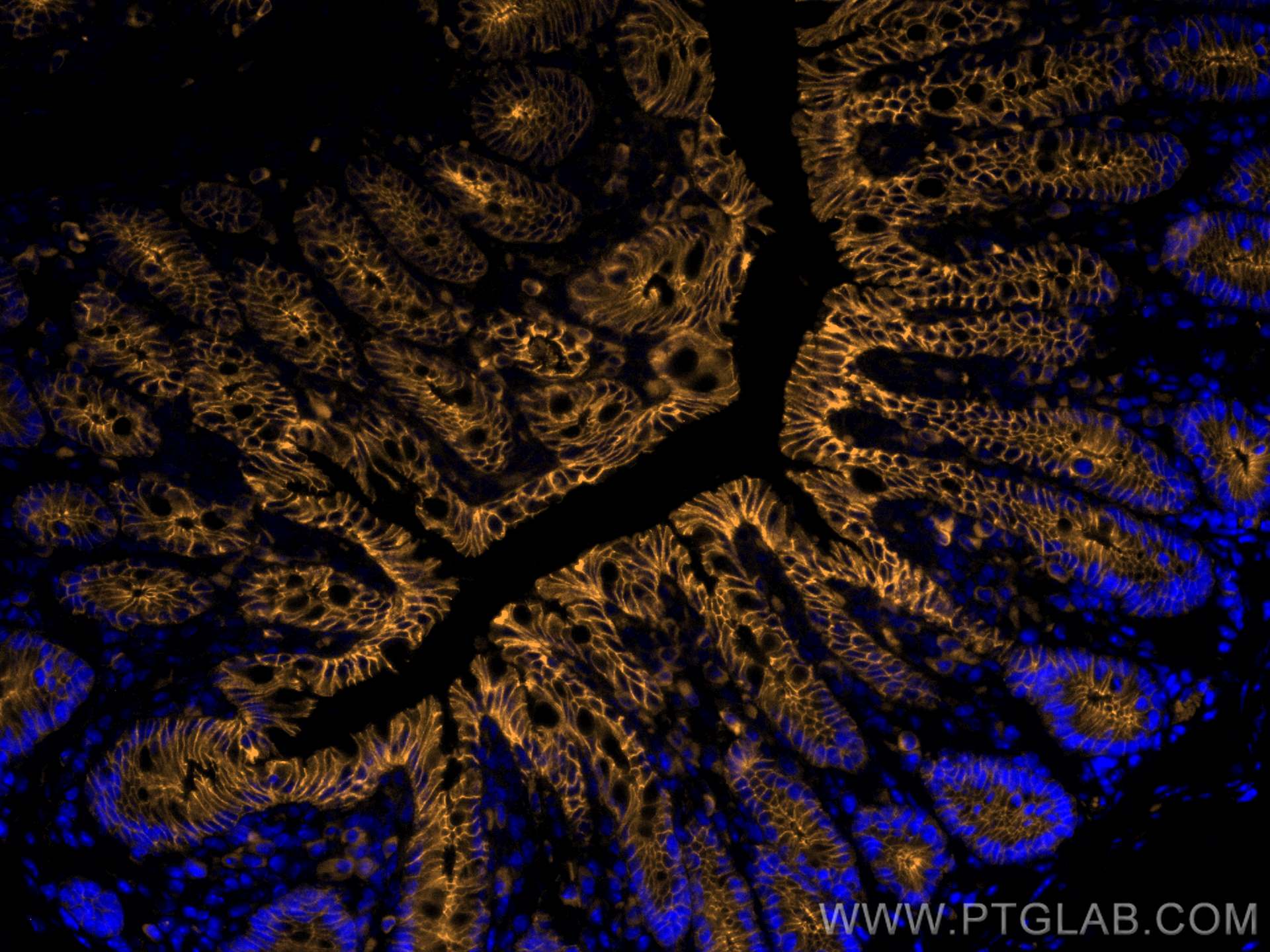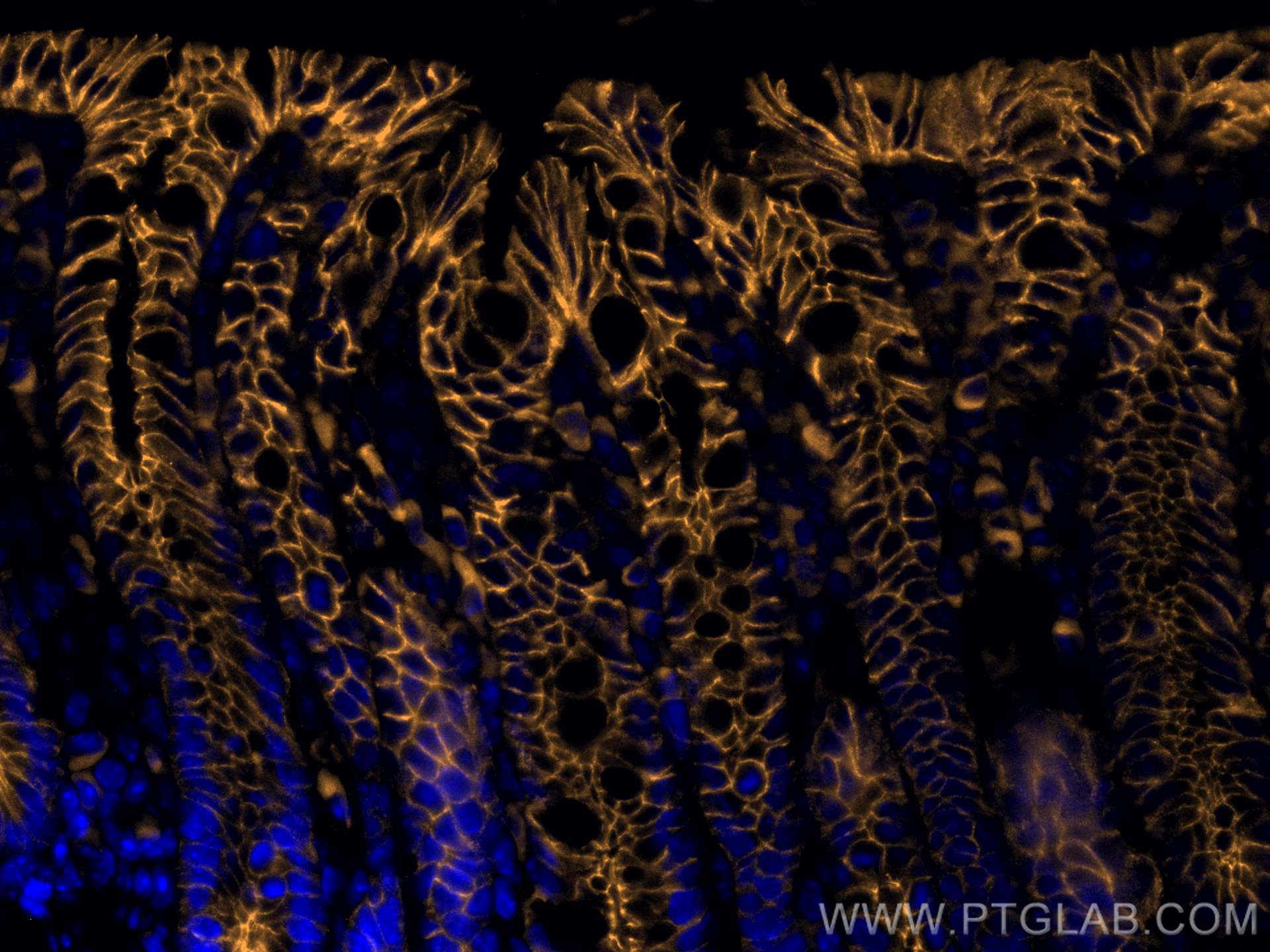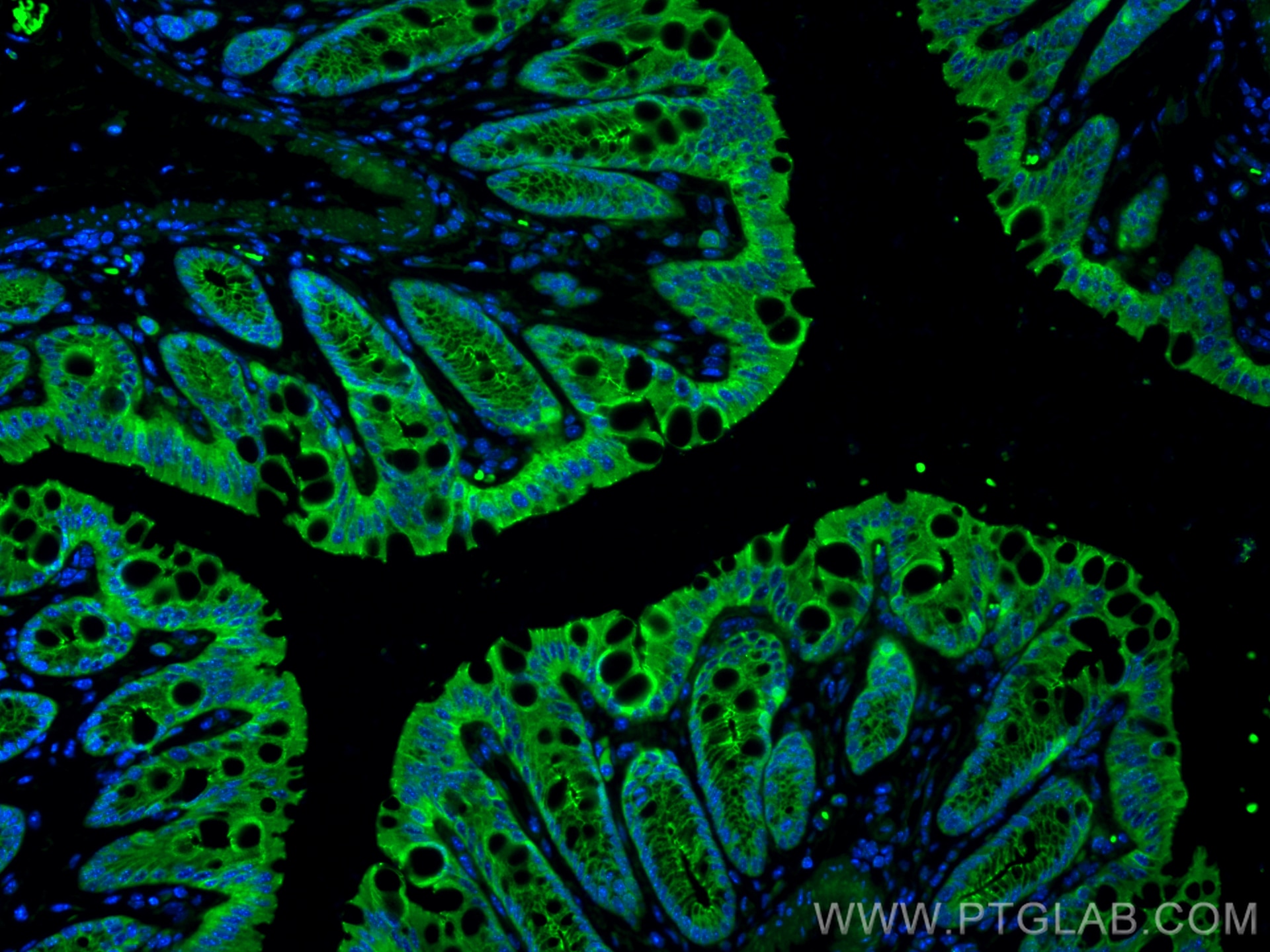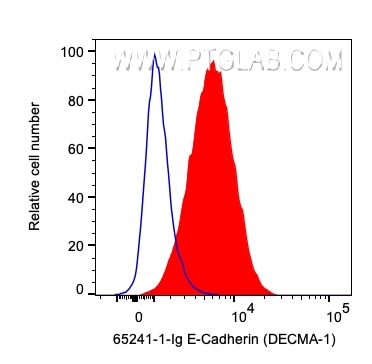Anticorps Monoclonal anti-E-cadherin
E-cadherin Monoclonal Antibody for IF-P, FC
Hôte / Isotype
Rat / IgG1, kappa
Réactivité testée
canin, Humain, souris
Applications
IF-P, FC
Conjugaison
Non conjugué
CloneNo.
DECMA-1
N° de cat : 65241-1-Ig
Synonymes
Galerie de données de validation
Applications testées
| Résultats positifs en IF-P | tissu de côlon de souris, |
| Résultats positifs en cytométrie | cellules MDCK, |
Dilution recommandée
| Application | Dilution |
|---|---|
| Immunofluorescence (IF)-P | IF-P : 1:625-1:2500 |
| This reagent has been tested for flow cytometric analysis. It is recommended that this reagent should be titrated in each testing system to obtain optimal results. | |
| Sample-dependent, check data in validation data gallery | |
Informations sur le produit
65241-1-Ig cible E-cadherin dans les applications de IF-P, FC et montre une réactivité avec des échantillons canin, Humain, souris
| Réactivité | canin, Humain, souris |
| Hôte / Isotype | Rat / IgG1, kappa |
| Clonalité | Monoclonal |
| Type | Anticorps |
| Immunogène | Mouse embryonal carcinoma cell line PCC4 Aza RI |
| Nom complet | cadherin 1 |
| Numéro d’acquisition GenBank | BC098501 |
| Symbole du gène | E-cadherin |
| Identification du gène (NCBI) | 12550 |
| Conjugaison | Non conjugué |
| Forme | Liquide |
| Méthode de purification | Purification par affinité |
| Tampon de stockage | PBS with 0.09% sodium azide |
| Conditions de stockage | Store at 2-8°C. Stable for one year after shipment. |
Informations générales
Cadherins are a family of transmembrane glycoproteins that mediate calcium-dependent cell-cell adhesion and play an important role in the maintenance of normal tissue architecture. E-cadherin (epithelial cadherin), also known as CDH1 (cadherin 1) or CAM 120/80, is a classical member of the cadherin superfamily which also include N-, P-, R-, and B-cadherins. It has been regarded as a marker for spermatogonial stem cells in mice(PMID:23509752). E-cadherin is expressed on the cell surface in most epithelial tissues. The extracellular region of E-cadherin establishes calcium-dependent homophilic trans binding, providing specific interaction with adjacent cells, while the cytoplasmic domain is connected to the actin cytoskeleton through the interaction with p120-, α-, β-, and γ-catenin (plakoglobin). E-cadherin is important in the maintenance of the epithelial integrity, and is involved in mechanisms regulating proliferation, differentiation, and survival of epithelial cell. E-cadherin may also play a role in tumorigenesis. It is considered to be an invasion suppressor protein and its loss is an indicator of high tumor aggressiveness.
Protocole
| Product Specific Protocols | |
|---|---|
| IF protocol for E-cadherin antibody 65241-1-Ig | Download protocol |
| FC protocol for E-cadherin antibody 65241-1-Ig | Download protocol |
| Standard Protocols | |
|---|---|
| Click here to view our Standard Protocols |





